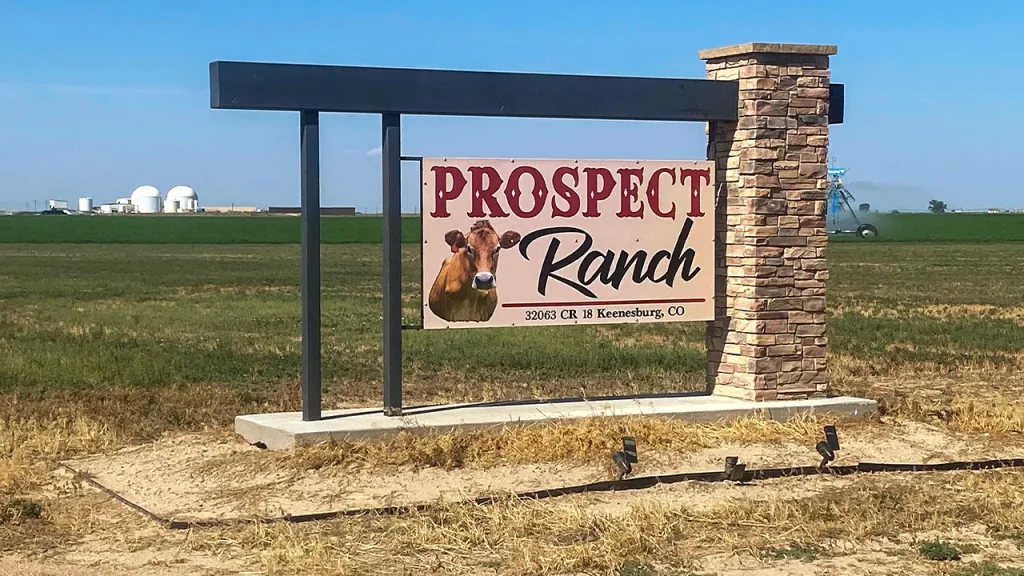Tragedy Strikes Colorado Dairy Farm: Six Lives Lost to Toxic Gas Exposure
In a heartbreaking incident that shook a rural Colorado community, six people lost their lives at Prospect Ranch dairy farm near Keenesburg in August due to exposure to toxic hydrogen sulfide gas. The victims—five men and one teenager—were family members working together when they encountered lethal levels of the dangerous gas in what authorities described as a “confined space” incident. The tragedy has not only devastated families but also sent ripples of shock through the tight-knit agricultural community northeast of Denver.
The deceased have been identified as Ricardo Gomez Galvan, Noe Montañez Casañas, Carlos Espinoza Prado, Jorge Sanchez Pena, Alejandro Espinoza Cruz, and Oscar Espinoza Leos, who was only 17 years old. These weren’t just coworkers—they were a family bound by blood and marriage. Jolene Weiner, chief deputy coroner for Weld County, confirmed that Cruz was the father of both Leos and Prado, while Pena was related to them through marriage. This family connection has made the tragedy even more devastating for the survivors left behind. When emergency crews from the Southeast Weld Fire Protection District arrived at the scene after receiving a call for a “confined space” rescue, they discovered a scene that would haunt the community for years to come.
Hydrogen sulfide, the gas responsible for this tragedy, presents a particularly insidious threat to agricultural workers. According to the Occupational Safety and Health Administration (OSHA), this colorless gas—recognizable by its distinctive rotten egg smell—can be deadly at high concentrations, causing rapid death without adequate warning. What makes this gas especially dangerous is how quickly it can overcome victims in enclosed spaces like those found on dairy farms. Even for those lucky enough to survive significant exposure, the consequences can be severe and long-lasting, including persistent headaches, poor concentration, and other neurological effects. The autopsies and toxicology reports confirmed exposure to this toxic gas as the cause of death, though they did not specify the exact circumstances that led to this catastrophic event.
When news of the deaths first broke in August, authorities quickly suspected gas exposure as the likely cause, but needed to determine exactly what type of gas was involved. “We are investigating these deaths as the possible consequence of gas exposure in a confined space,” Weiner stated at the time. This type of incident, while known as a risk in agricultural settings, rarely claims so many lives at once. Reverend Thomas Kuffel, a priest at Catholic churches including Holy Family in Keenesburg, expressed the community’s shock: “People are in shock. Everybody in the ranching and dairy community knows it’s difficult, hard work and there are accidents. But this is very foreign to them, in that accidents are typically one or two people.” The scale of this tragedy—taking six lives at once—has forced many in the agricultural industry to reconsider safety protocols around potentially hazardous environments.
The deaths occurred at Prospect Ranch, situated in a quiet rural area less than 40 miles northeast of Denver. While dairy farming forms the backbone of many rural Colorado communities like Keenesburg, the industry is not without its risks. Confined spaces on farms—including manure pits, storage tanks, and certain processing areas—can accumulate dangerous gases like hydrogen sulfide, methane, and carbon dioxide. These gases, byproducts of normal agricultural processes, can displace oxygen or reach toxic levels without proper ventilation or safety measures. This incident has highlighted the critical importance of proper training, monitoring equipment, and safety protocols when working in such environments. The investigation continues, though details may be delayed due to the government shutdown affecting OSHA’s operations.
In the wake of this devastating loss, the community has rallied around the surviving family members with remarkable compassion and solidarity. Neighbors and friends quickly organized fundraisers, including dances and car washes, to provide financial support to the bereaved families. Local churches held memorial events to honor the deceased and offer spiritual comfort to those mourning. This outpouring of support demonstrates the strength and resilience of rural communities in times of tragedy. The incident serves as a sobering reminder of the hazards faced by agricultural workers and the need for rigorous safety standards in all farming operations. As this community continues to heal, many hope that sharing the story of this tragedy might prevent similar incidents in the future by raising awareness about the dangers of toxic gas exposure and the importance of proper safety measures in agricultural settings.










